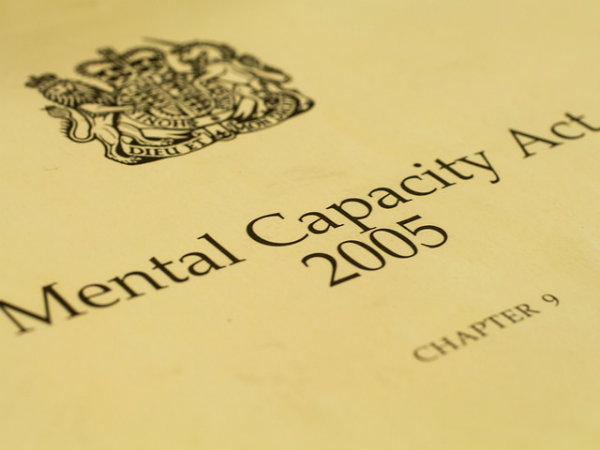
A government project to improve compliance with the Mental Capacity Act 2005 (MCA) among social workers and other professionals has been delayed because attention was diverted to the fallout from a landmark Supreme Court ruling on deprivation of liberty, according to ministers.
The government has yet to start the process to recruit a chair for its national mental capacity forum, more than six months after it announced the project and the group won’t meet until the autumn this year. The forum, which will bring together stakeholders to inform policy and practice, was one of the government’s key responses to a highly-critical House of Lords committee report on the implementation of the MCA, published last March.
In a letter to peers, justice minister Lord Faulks said that that the fundamental changes required to court rules and forms as a result of the landmark Cheshire West judgement handed down last March had “unavoidably” left less time to implement recommendations from the Lords report.
Speaking in a Lords debate on the progress made on MCA practice in the 12 months since the report, the chair of the Lords MCA committee, Lord Hardie, warned that evidence suggested knowledge of the MCA remained “extremely limited” among health and care professionals and accused the government of showing a lack of urgency to address poor practice.
The court ruling and the Lords report
Both the Lords report and the Cheshire West judgement were issued in March 2014. The Supreme Court ruling effectively lowered the threshold for what constitutes deprivation of liberty in care. In doing so it triggered a surge in new cases requiring authorisation under the Deprivation of Liberty safeguards (Dols) or by the Court of Protection.
The Lords report delivered a damning verdict on the implementation of both the Mental Capacity Act and the Dols following a 10-month inquiry. The report made two key recommendations:
- That the Dols, which only apply to hospitals and care home placements, should be scrapped and replaced by a framework that extends to supported living and;
- That an independent body should be set up to oversee implementation of the MCA amid concerns over the practice of health and social care professionals.
The government response
In its official response to the Lords report, published last September, the government rejected the call to scrap the Dols and said there was no need to rethink the legislation. Less than three months later it performed a U-turn and asked the Law Commission to review the Dols framework after the impact of the Cheshire West judgement became apparent. The Law Commission review, which also covers supported living, will report in 2017.
The government stopped short of accepting the Lords’ recommendation to establish an independent body to oversee MCA implementation. Instead it agreed to set up a national mental capacity forum, headed up by an independent chair. Faulks’s letter revealed that formal recruitment for the position of chair had yet to start but would begin “imminently”. The first meeting of the forum won’t be until the Autumn, Faulks said.
In the Lords debate held this week, Hardie said stakeholders had raised concerns over the timetable for new deprivation of liberty laws. Scrutiny of the draft legislation due to be produced by the Law Commission Dols review means new laws are unlikely to be tabled before 2020, he said.
Hardie also expressed concerns that the government’s mental capacity forum would be a “talking shop with no power or responsibility to drive forward implementation of the Act”. He also criticised the delays in appointing a chair to the forum and accused the government of showing a “lack of urgency” with the project.
“The process appears to be very slow and lacking transparency. However, I emphasise that my fundamental objection to this proposal by the government is that it is not a solution to the widespread problems, across all sectors, of failure to implement the Act, and to give vulnerable people the voice and empowerment that Parliament conferred upon them in 2005,” he said.
“In short, it will not bring about the quiet revolution in public attitudes and practice promised 10 years ago. That will only be realised if the Select Committee’s recommendation 3 (to set up an independent body) is implemented in full.”


 Bournemouth, Christchurch and Poole
Bournemouth, Christchurch and Poole  Hampshire County Council
Hampshire County Council  Lincolnshire County Council
Lincolnshire County Council  Norfolk County Council
Norfolk County Council  Northamptonshire Children’s Trust
Northamptonshire Children’s Trust  South Gloucestershire Council
South Gloucestershire Council  Wiltshire Council
Wiltshire Council  Wokingham Borough Council
Wokingham Borough Council  Children and young people with SEND are ‘valued and prioritised’ in Wiltshire, find inspectors
Children and young people with SEND are ‘valued and prioritised’ in Wiltshire, find inspectors  How specialist refugee teams benefit young people and social workers
How specialist refugee teams benefit young people and social workers  Podcast: returning to social work after becoming a first-time parent
Podcast: returning to social work after becoming a first-time parent  Podcast: would you work for an inadequate-rated service?
Podcast: would you work for an inadequate-rated service?  Family help: one local authority’s experience of the model
Family help: one local authority’s experience of the model  Workforce Insights – showcasing a selection of the sector’s top recruiters
Workforce Insights – showcasing a selection of the sector’s top recruiters 

 Facebook
Facebook X
X LinkedIn
LinkedIn Instagram
Instagram
Comments are closed.